10 Second Summary – Morocco Travel Tips
Sure, here are some essential Morocco Travel Tips that can help you when you’re planning a trip to Morocco:
- Know the Best Time to Visit: The best time to visit Morocco is during spring (April to June) or autumn (September to November). This is when the weather is most comfortable.
- Dress Conservatively: Morocco is a Muslim country, and it is advisable to dress modestly, especially in rural areas and mosques.
- Currency: The official currency of Morocco is the Moroccan Dirham. It’s recommended to have some cash for small purchases as not all places accept credit cards.
- Learn Basic Arabic or French Phrases: While many Moroccans speak English, especially in major cities, it can be beneficial to know a few phrases in Arabic or French.
- Bargain in the Souks: Haggling is a part of the culture in Morocco, especially in the souks (markets). Starting at about half the seller’s initial price is a common practice.
- Tipping: Tipping is customary in Morocco. For small services, a tip of 5 to 10 Dirhams is appropriate.
- Stay Hydrated: Remember to drink plenty of water, especially during the hot summer months. However, avoid tap water and opt for bottled water instead.
- Respect the Culture: Understand that Moroccan culture may be different from your own. Be respectful of local customs and traditions.
- Be Aware of Scams: Be cautious of people offering unsolicited help, as it may be a scam. Always be aware of your belongings.
- Try Local Food: Moroccan cuisine is rich and varied. Don’t miss out on traditional dishes like tagine and couscous.
- Get Travel Insurance: It’s always a good idea to have travel insurance that covers any medical expenses, trip cancellation, lost luggage, etc.
- Use Public Transport: Trains and buses in Morocco are reliable and affordable. They are a great way to travel between cities.
- Stay Connected: Buy a local SIM card to stay connected. Wi-Fi may not be readily available everywhere.
- Safety: Morocco is generally a safe country for travelers, but it’s always important to stay alert and aware of your surroundings.
- Visa Requirements: Check if you need a visa to enter Morocco. For many countries, a visa is not required for stays up to 90 days.
- Accommodation: Consider staying in a Riad, a traditional Moroccan house, for an authentic experience.
- Visit the Sahara Desert: A trip to the Sahara Desert is a must when visiting Morocco. You can take a camel trek or enjoy a night under the stars in a desert camp.
Remember, these are general tips and might not apply to everyone. Always do thorough research and planning before your trip to ensure a smooth and enjoyable experience.
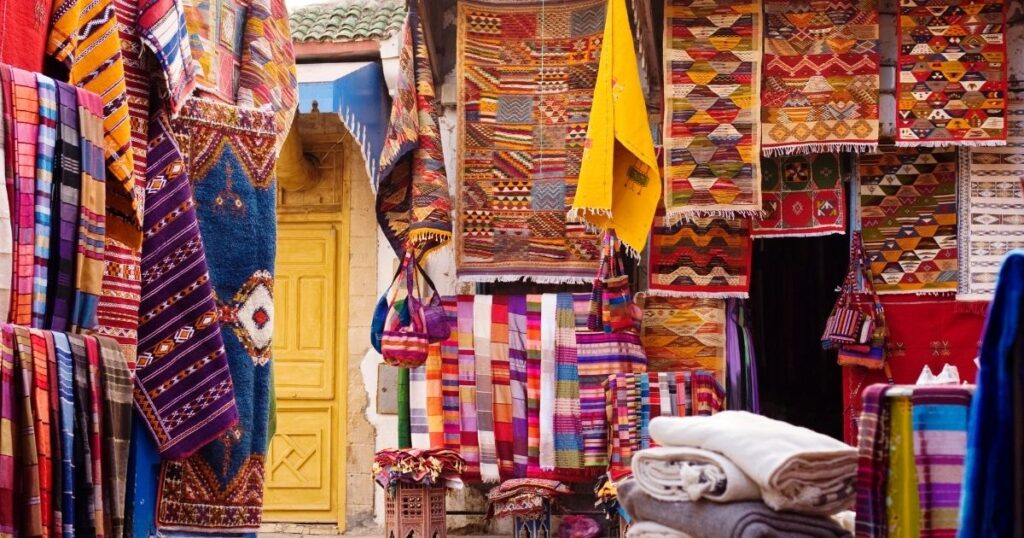
If you’re planning a trip to Morocco, you’re in for an adventure filled with vibrant landscapes, rich culture, and diverse languages. However, it’s essential to be well-prepared to ensure a smooth and enjoyable journey. Here are our top Morocco travel tips to help you make the most of your visit:
1. Beware of Scams, Especially in Marrakech
Marrakech is often referred to as “scam city,” but this is a concern that extends to many parts of the country. Tourists are frequently targeted by touts and scam artists looking to take advantage of the unwary. These scams can range from pushy henna artists to persistent short-changing and offering incorrect directions. To protect yourself, do thorough research before your trip, be aware of common scams, and stay vigilant throughout your travels.
Here are 10 things NOT to do in Marrakech:
- Taking Photos of People or Their Merchandise: It is crucial to be respectful of the locals and their beliefs when it comes to taking photos. Many Moroccans have superstitions surrounding cameras and photographs and may not take kindly to tourists capturing their images without permission. Always ask for permission first and be prepared for the possibility of them declining or requesting a small amount of compensation. Respecting their privacy will go a long way in creating a positive atmosphere.
- Wearing Your Emotions: In a bustling city like Marrakech, it is easy to become overwhelmed by persistent salespeople and street vendors. However, it is essential to maintain a friendly and patient demeanor. Moroccan locals often mirror your emotions, so staying calm and saying “no thanks” with a smile will help you avoid any aggressive or uncomfortable confrontations. Patience and firmness are key when navigating the shopping areas and souks.
- Entering Mosques if You Don’t Practice Islam: While mosques are incredibly beautiful and culturally significant, it is important to remember that they are sacred places for Muslims. Unless you practice Islam, it is best to admire the architecture and beauty of the mosques from the outside. The Hassan II Mosque in Casablanca is an exception to this rule, as it allows non-Muslim visitors.
- Entering a Taxi with a “Broken” Meter: To avoid being overcharged, always ask the taxi driver if their meter is functioning properly before getting into the taxi. Some drivers may try to convince you that their meter is broken to justify charging higher fares. By being vigilant and ensuring that the meter is working, you can prevent unnecessary financial inconvenience.
- Accepting Directions from Strangers: Marrakech has its fair share of individuals who may offer directions, especially in tourist areas. However, it is crucial to be cautious and not follow anyone who approaches you claiming to know the way. This is often a scam, and their intention is to lead you astray and then demand money for guiding you back to your original location. Instead, trust your own navigation skills, and remember that getting temporarily lost in a city like Marrakech is not uncommon.
- Wearing Showy Clothing: While Marrakech is relatively liberal compared to smaller Moroccan towns, it is still recommended to dress conservatively, especially outside major tourist areas. Though women are not required to wear headscarves, it is advisable to avoid wearing revealing clothing such as short shorts or skimpy tank tops. Opt for modest attire, such as loose-fitting clothes that cover your legs and shoulders. This is particularly important when visiting smaller rural towns.
- Getting Henna in the Square or on the Streets: Henna artists often offer their services in the main squares and streets of Marrakech. However, it is crucial to be cautious when choosing a henna artist. Some may use harmful ingredients in their ink, such as gasoline. To ensure your safety, it is recommended to go to a cafe or shop that specializes in henna, where you can verify that the ink used is safe.
- Paying Advertised Prices: Haggling is a common practice in Moroccan markets, and it is often possible to negotiate lower prices than initially advertised. Before making a purchase, visit several shops selling similar items to get an idea of the average price. When ready to buy, feel free to ask for a lower price, starting around 25-35% below the advertised amount. However, it is crucial to strike a balance between getting a fair price and ensuring that the shop owners can sustain their businesses.
- Believing Everyone is Out to Get You: While it is essential to be cautious and aware of your surroundings, it is equally important to recognize that not everyone you encounter in Marrakech is looking to scam you. Moroccans are generally welcoming and friendly people who want visitors to enjoy their country. By trusting your instincts, exercising common sense, and being open-minded, you can have a truly memorable experience in Marrakech.
2. Brush Up on Languages
Morocco boasts a multitude of languages, including Moroccan Arabic, Berber, French, and even Spanish in some regions. Having a basic understanding of these languages can significantly enhance your experience and help you navigate various situations more easily. Consider learning a few common phrases or carrying a phrasebook with you.
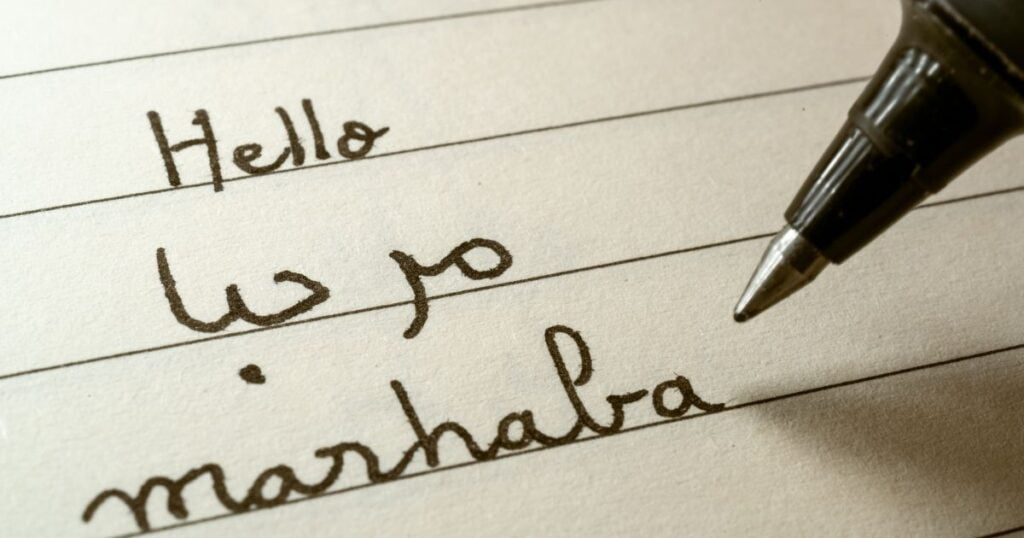
3. Embrace Local Transportation, But Choose Wisely
When it comes to getting around Morocco, you have several options, including trains, buses, and taxis. While local buses may seem like an authentic experience, they can be crowded and time-consuming. Instead, consider opting for private bus companies like Supratours or CTM, which offer more comfort and reliability. Grand taxis may not be luxurious but are a cost-effective means of travel for short distances.
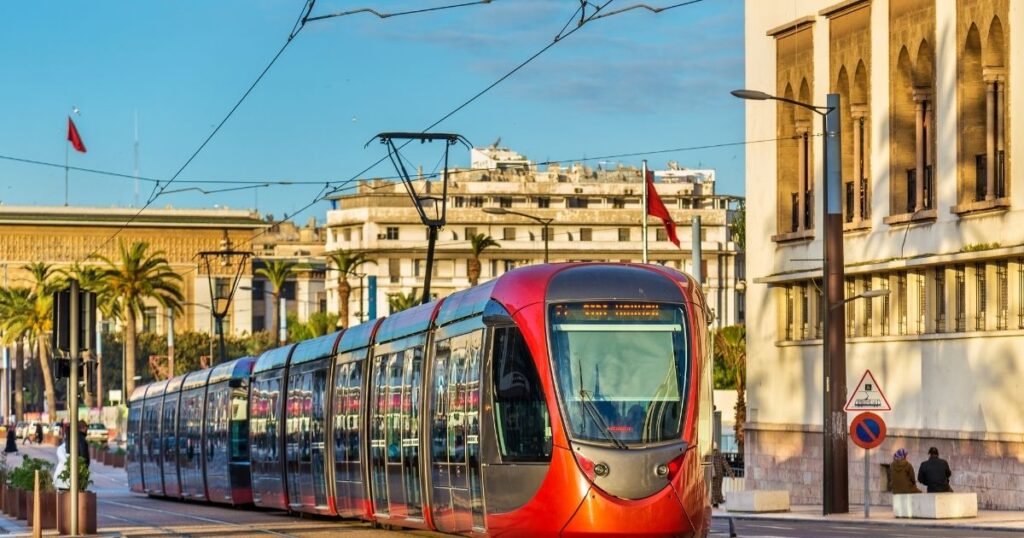
4. The Sahara Is Worth the Journey
Visiting the Sahara Desert is a dream for many travelers, but be prepared for a long and challenging road trip. The desert is located far from major cities and involves hours of driving through mountainous terrain. Pack accordingly, as desert temperatures can vary greatly between day and night.
No visit to Morocco is complete without experiencing the magic of the Sahara Desert. Consider embarking on a camel trek or spending a night in a desert camp for an unforgettable adventure.
If you’re a hiking enthusiast, Morocco’s Atlas Mountains offer a paradise of trails suited to all skill levels. Whether you’re a beginner or an experienced trekker, the stunning landscapes will leave you in awe.
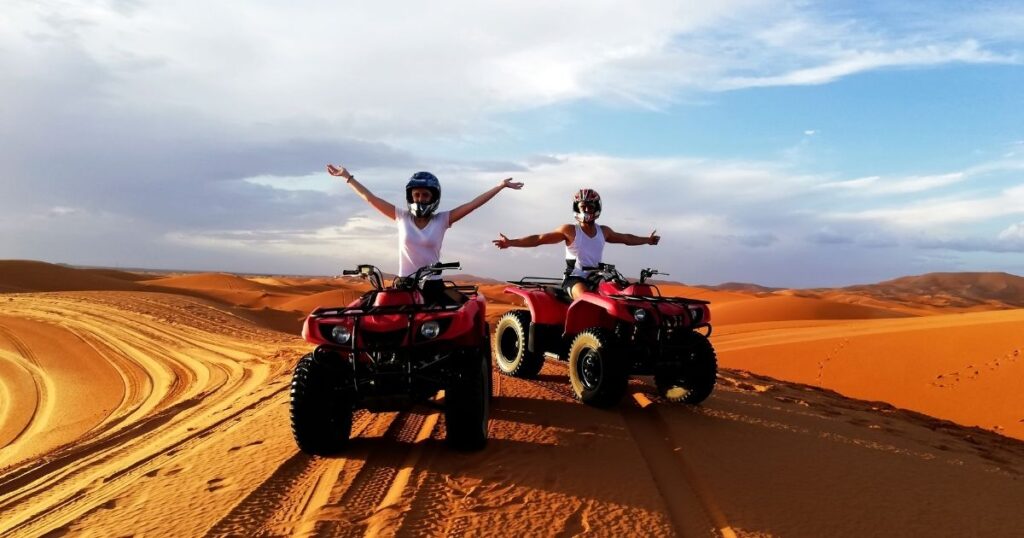
5. Enjoy Fresh Juices
One delightful aspect of Moroccan cuisine is the abundance of fresh-squeezed fruit juices, especially orange juice. You’ll find these refreshing beverages available at reasonable prices throughout the country. Don’t miss the opportunity to try exotic blends like avocado and banana juice.
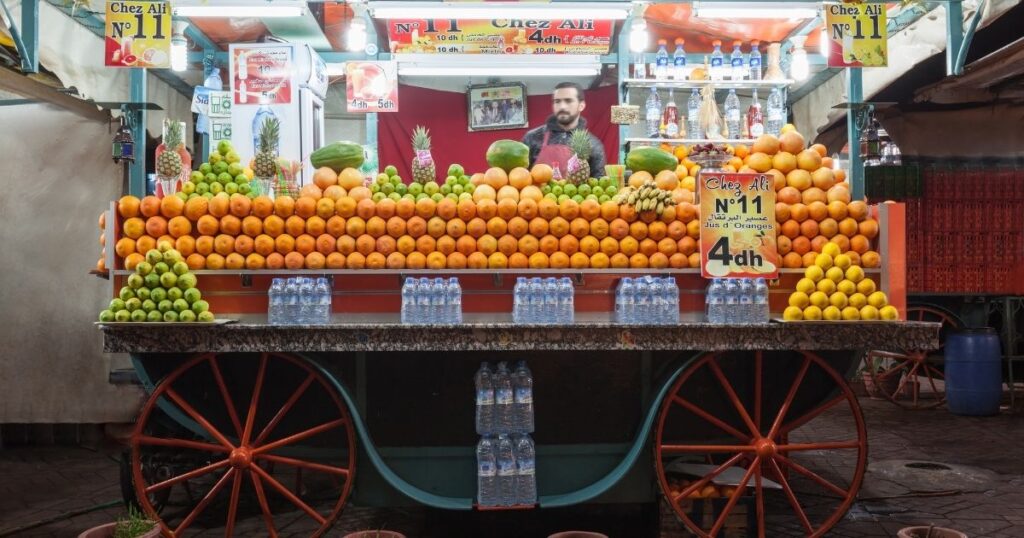
6. Bread Lovers, Rejoice
Moroccan cuisine prominently features bread, known as “Khubz” in Arabic. It’s not just a side dish; it often serves as a utensil for scooping up food. If you’re a bread lover, you’ll be in paradise. However, those on carb-free diets may need to make exceptions while in Morocco.
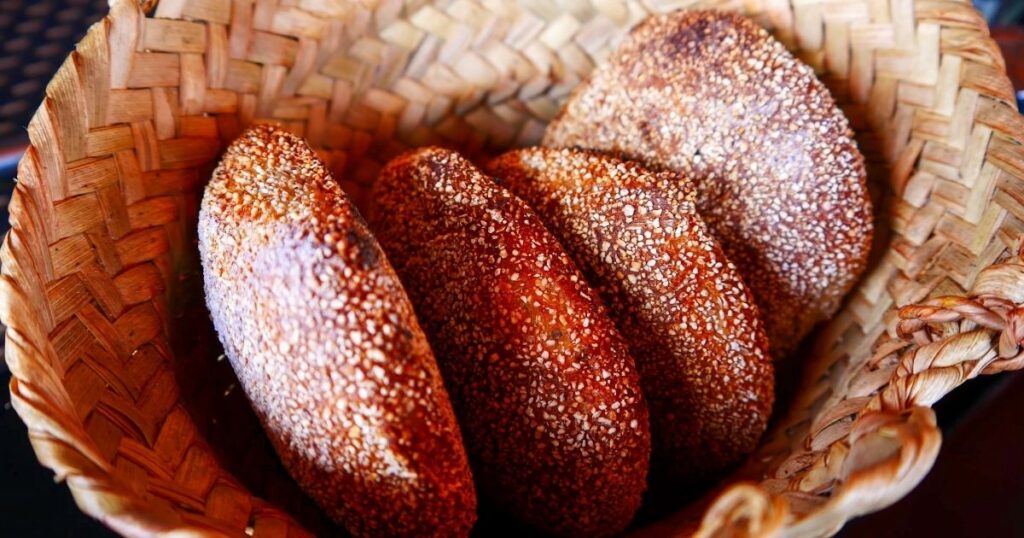
7. Embrace the Tea Culture
Tea plays a central role in Moroccan hospitality. Don’t miss the opportunity to enjoy a cup of refreshing mint tea with locals—it’s a delightful way to connect with the people and learn about their traditions.
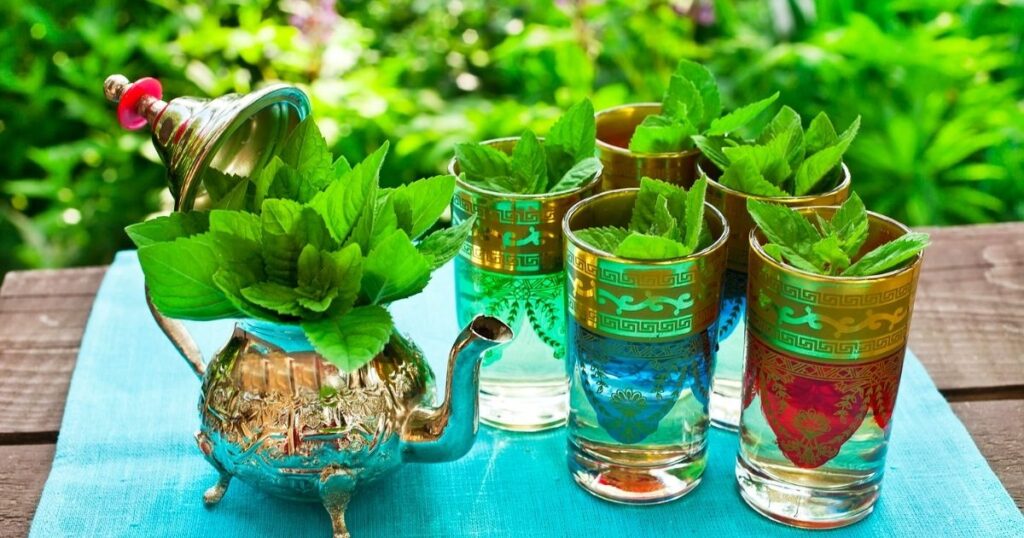
8. Watch Your Sugar Intake
Morocco is known for its sweet treats and delicious mint tea. However, if you want to avoid dental issues, request your beverages with less sugar. Moroccans are generous with their sugar, and excessive consumption can be harmful to your health.
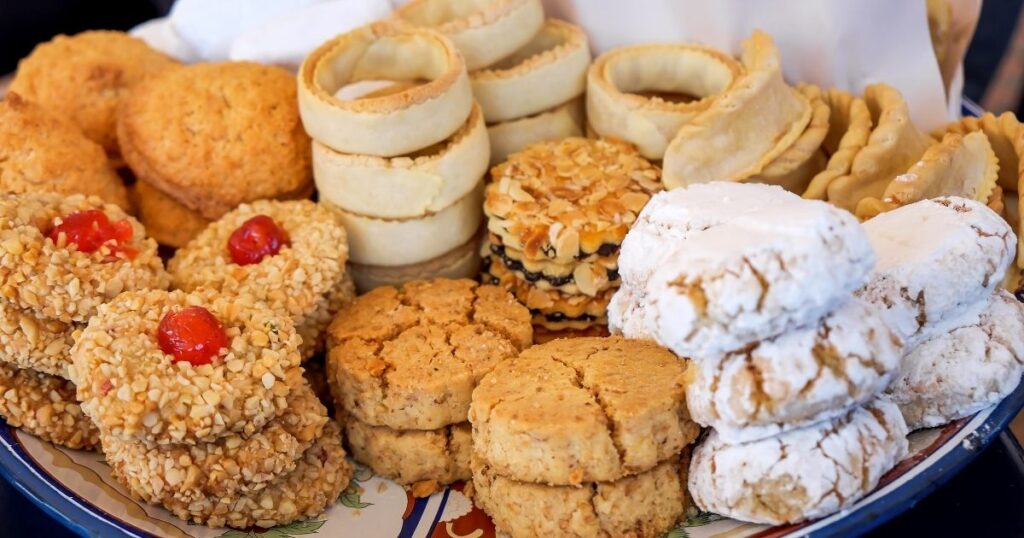
9. Capture Memories
Morocco is a visually stunning country, known for its vibrant colors, intricate textures, and unique shapes. Make sure to pack a camera and extra memory cards. Consider taking a hot air balloon ride for breathtaking aerial views, combined with a camel ride experience.
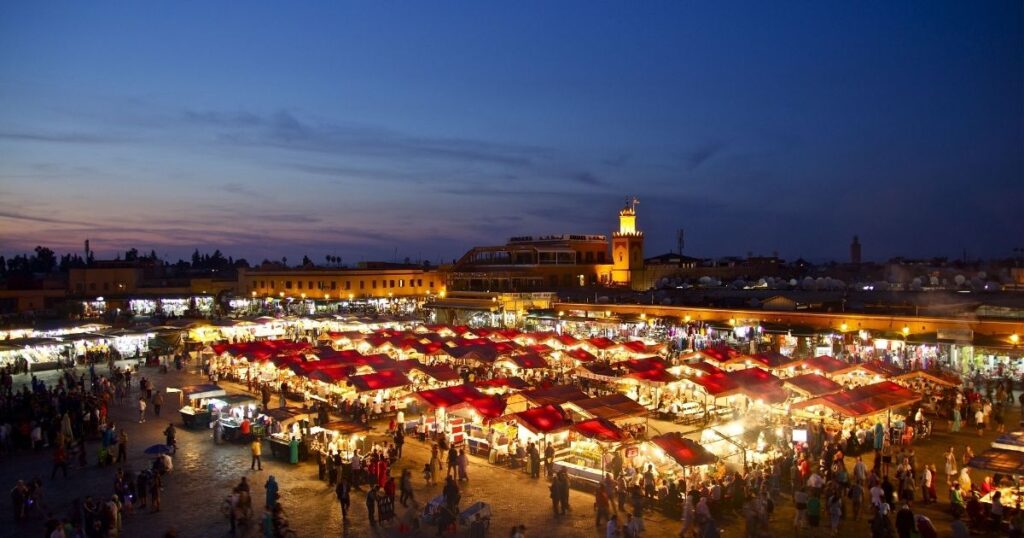
10. Understand the Medina Maze
Exploring the old medinas of cities like Fez and Marrakech is an adventure in itself. These labyrinthine streets can be overwhelming, and you’ll inevitably get lost. Embrace the experience, enjoy discovering hidden gems, and trust your intuition to find your way back.
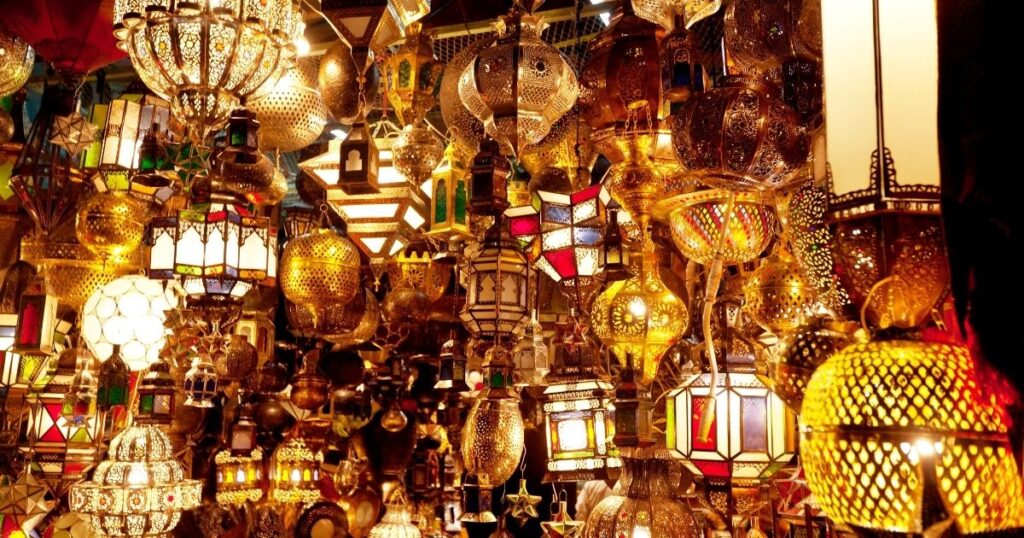
11. Get Acquainted with Riads
During your stay in Morocco, you’ll likely encounter riads, traditional Moroccan guesthouses. While charming at first, they may not suit everyone’s taste due to limited natural light and potential noise. Be prepared for the riad experience and, if necessary, opt for accommodations that better align with your preferences.
During peak tourist seasons, it’s advisable to book your accommodations in advance, especially if you have specific preferences. This ensures you have a comfortable place to rest after a day of exploring Morocco’s wonders.
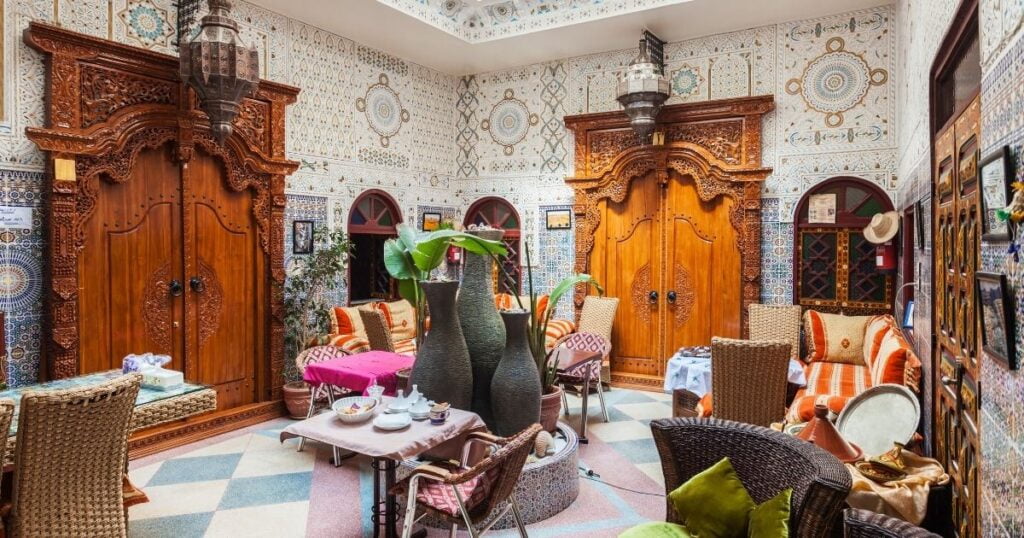
12. Be Prepared for Costs
While Morocco is more affordable than many Western destinations, it’s not as budget-friendly as some Southeast Asian countries. Plan your budget accordingly, and expect to spend around $40 per day per person in major cities for a moderate budget. More luxurious travel experiences will require a higher budget.
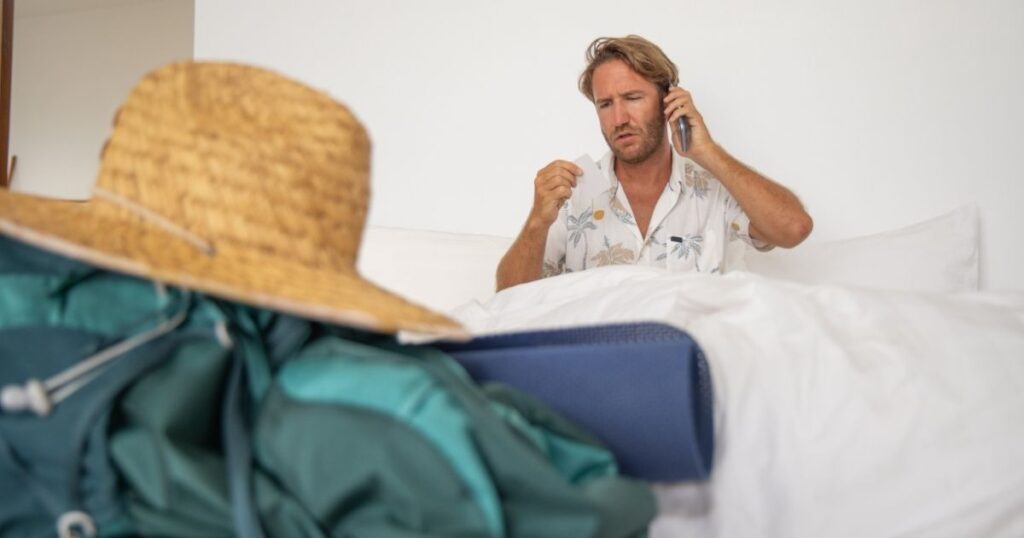
13. Trust Your Instincts
When interacting with locals, exercise caution, especially if someone approaches you unsolicited. While many Moroccans are friendly and genuine, some individuals may have ulterior motives. Politely decline offers from strangers and be wary of unsolicited assistance, as it may come with unexpected demands for payment.
To respect local customs, refrain from engaging in public displays of affection in Morocco. Keep romantic moments private to avoid causing offense.
While Morocco is generally safe for travelers, exercise caution when dealing with potential scams or overly persistent sellers. Trust your instincts and politely decline unsolicited offers.
14. Prioritize Safety
Morocco is generally a safe country for travelers, with a low crime rate compared to many Western countries. Still, exercise common sense to ensure your safety. Avoid walking alone in poorly lit areas, secure your valuables, and stay alert in crowded places. Female travelers may opt to wear a hijab or sunglasses to reduce unwanted attention.
15. Cash Is Essential
In Morocco, the official currency is the Moroccan Dirham (MAD). While credit cards are widely accepted in major cities, cash is preferred in rural areas and smaller towns. Carry ample cash with you for daily expenses and shopping in local markets. It’s advisable to exchange currency at banks or exchange offices for better rates.
16. Choose the Right Season
The best time to visit Morocco largely depends on your tolerance for extreme weather. Avoid the sweltering heat of the summer months (June to August) if possible. Spring (March to May) and autumn (September and October) offer pleasant weather for outdoor activities and sightseeing. Even the low season (November to February) has mild temperatures, making it suitable for travel.
17. Pack Smart
When preparing for your trip, consider the local culture and dress modestly, especially in rural areas and conservative regions. Essential items to pack include a scarf for covering up, comfortable and breathable shoes, a versatile shemagh (for various uses), sunscreen, a microfiber travel towel, and an adapter with the Europlug.
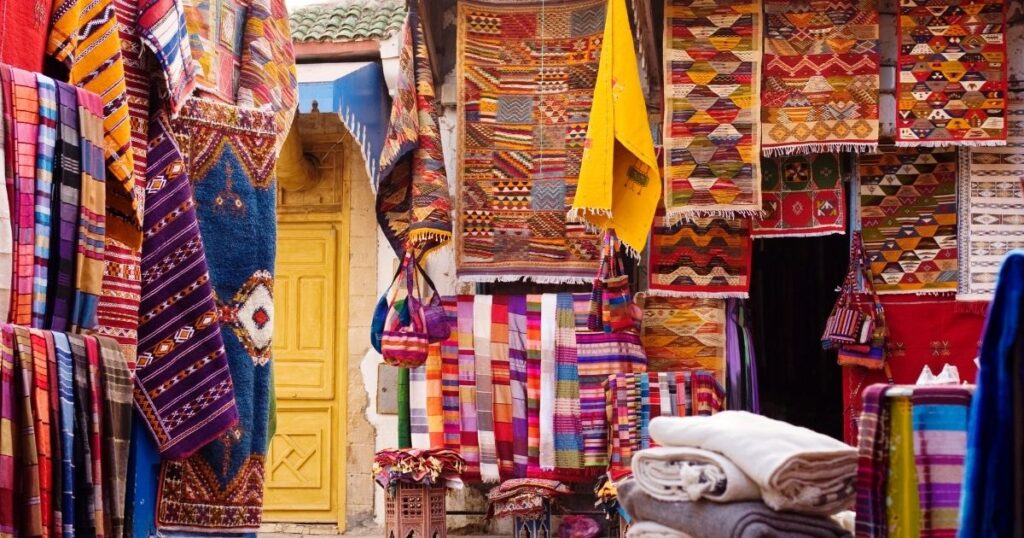
18. Stay Connected
For mobile connectivity, consider purchasing a local SIM card from providers like Maroc Telecom, Meditel, or Inwi. Data is affordable and readily available in most towns and cities.
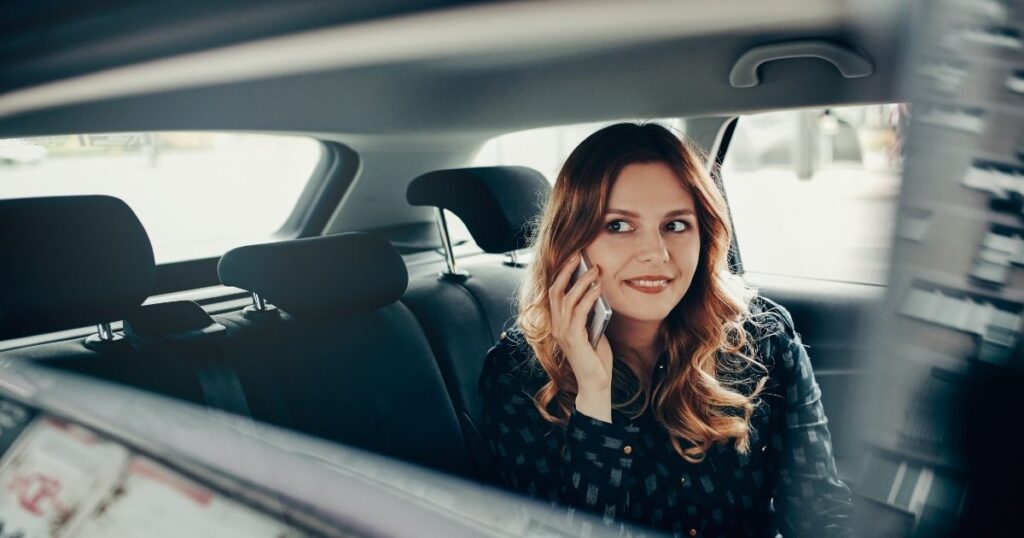
With these essential Morocco travel tips in mind, you’ll be better prepared to explore this enchanting country and make the most of your visit. Morocco offers a unique blend of history, culture, and natural beauty, ensuring an unforgettable travel experience. Enjoy your journey!
FAQs
1. Is Morocco safe for solo travelers?
Morocco is generally safe for solo travelers, but it’s essential to exercise the usual precautions. Stick to well-traveled areas, avoid walking alone at night, and be cautious of your belongings.
2. What is the best time to visit Morocco?
The best time to visit Morocco is during spring (March to May) and fall (September to November) when the weather is pleasant. Summers can be scorching, while winters can be quite cold, especially in the mountains.
3. Can I drink tap water in Morocco?
It’s advisable to drink bottled water in Morocco to avoid stomach discomfort. Many hotels and restaurants also serve filtered or bottled water.
4. How should I haggle in Moroccan markets?
Haggling is expected in Moroccan markets. Start by offering half of the asking price and be prepared to negotiate until you reach a mutually acceptable price.
5. Are there any cultural taboos in Morocco?
Yes, there are. Public displays of affection, especially between unmarried couples, are considered impolite. Additionally, it’s considered rude to point your feet at people or religious objects. Showing the soles of your feet is also disrespectful.


